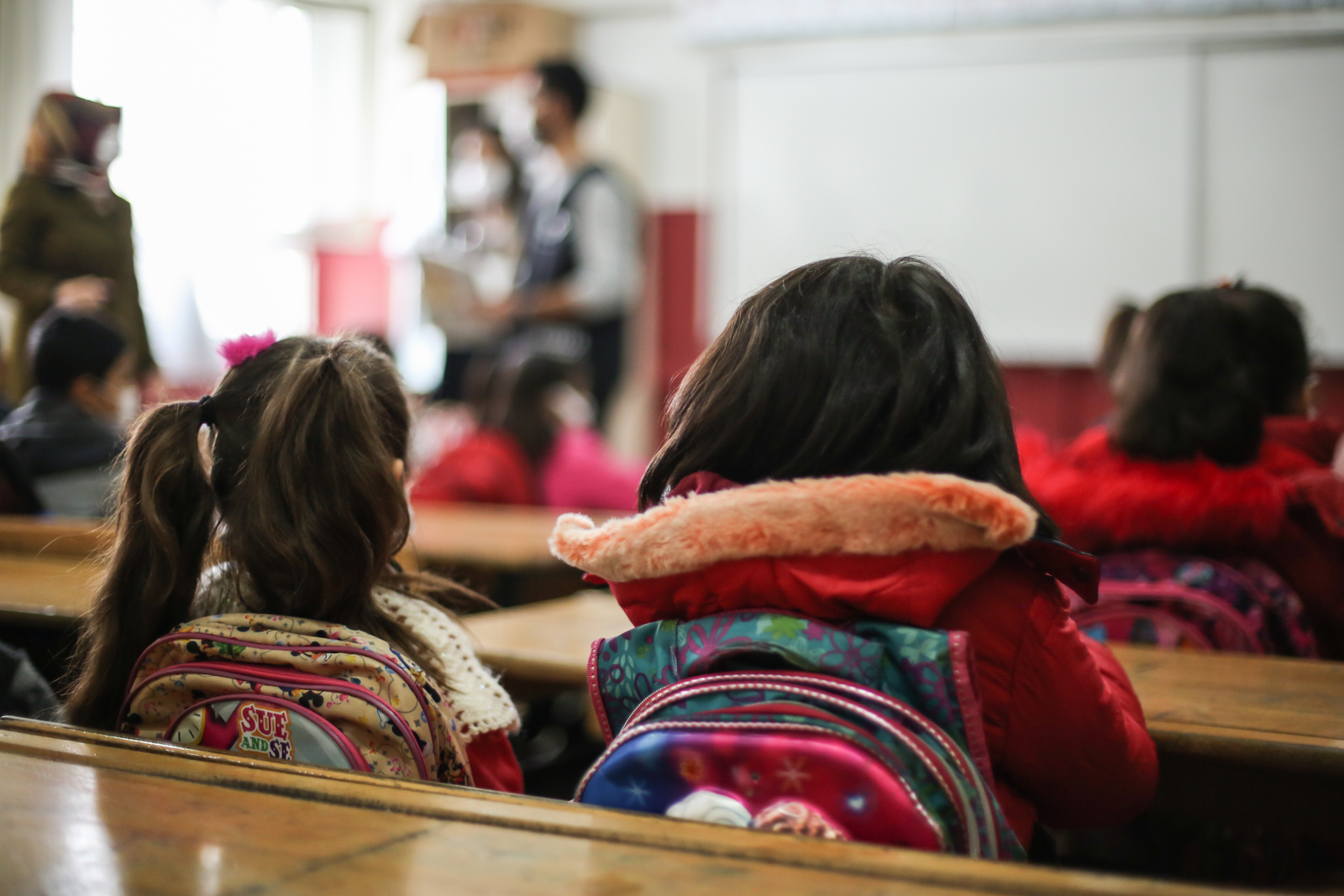
Safe Schools: Girls’ clubs help victims of sexual abuse in Kenyan slums
Child marriage, Girls' education, Safe schools
To mark Theirworld's Safe Schools report, we look at how girls are often intimidated on their way to school and experience gender-based violence.
Girls in some of Kenya’s poorest slums are being educated on how to protect themselves from sexual violence at school and in their communities.
An estimated one in three girls in Kenya experience sexual violence but just 10% receive any professional help.
Judy, 12, attends a Girls’ Club in Nyarongi. She is only 12 but she and her friends are often harassed by men as they travel to and from school.
Judy said: “On my way home, we often get catcalls from the cane cutters and boda boda [motorcycle taxi] riders. My biggest wish is that we get an education – the men should leave us alone.”
The enormous scale of attacks on schools and threats to education suffered by millions of children around the world has been revealed in a report by Theirworld.
Over 500 million school-age children and adolescents live in countries where schoolchildren face threats ranging from conflicts to natural disasters and gangs to gender-based violence.
Theirworld’s report Safe Schools: The Hidden Crisis projects that without urgent action that will rise by 2030 to over 620 million young people – almost one in three.

One in in 10 women and girls under the age of 20 have been subjected to sexual violence in a school at least once, says the report. Many of them have suffered multiple incidents.
The risk of sexual assault on the journey to school means many children and their parents are forced to weigh up these dangers against the benefits of getting an education.
One example of efforts to overcome these issues is international charity ActionAid in Kenya, where it is challenging social attitudes that promote gender-based violence. Its project is called Stop Violence Against Girls in Schools and its ideas to prevent violence include establishing clubs to educate girls on their rights.
Poverty in Kenya makes women and girls more vulnerable to abuses like rape, female genital mutilation, sexual exploitation and child marriage.
Survivors often cannot afford the medical or legal support they need and are left dealing with the emotional and physical impacts of the abuse on their own.
An ActionAid spokesperson said: “Survivors of sexual violence may be blamed and isolated from the community and girls who are married as children may be prevented from going to school.
“This can stop girls from getting an education, from being able to choose if and who they marry and from reaching their full potential. And it’s not just girls who suffer – when girls are held back the whole community is held back.”
Human Rights Watch has also highlighted violence against girls in Kenya including sexual violence linked to last year’s elections.
Voting was marred by violence and serious human rights abuses, especially in opposition strongholds in Nairobi, Nyanza, western Kenya, and the Coast. The victims included young girls.
A report by HRW last year said there was “widespread sexual violence against women and girls, and sexual attacks on men, in terms of numbers and locations”.
The establishment of Girls’ Clubs is a vital part of ActionAid’s work in Kenya. They are safe spaces for girls to learn about their rights and build the confidence to report abuse.
The charity is working in Nyarongi, Kilifi, Mukuru slum in Nairobi, and Garissa County in north-east Kenya.
ActionAid said: “Nyarongi is one of Kenya’s poorest regions and one in four children living there is HIV-positive. AIDS has wiped out whole generations, often leaving young girls to raise their siblings.
“In Kilifi, southern Kenya, rape and child marriage are common. Many girls drop out of school due to early and forced marriage and motherhood, or because they are expected to stay at home and do housework.
“In Garissa County, north-east Kenya, 98% of girls have undergone female genital mutilation, which can result in a lifetime of serious health consequences.”

Girls’ education
The charity is also working in Mukuru slum in Nairobi, which has some of the highest rates of violence against women and girls in Kenya.
Only a tiny minority of survivors there (8.7%) report cases of violence to the police, often because they are unaware of their legal rights and how to get support.
Street harassment is another major problem for girls in Kenya. This includes catcalling, unwanted comments, gestures, honking and uninvited sexual advances from strangers in a public place.
ActionAid said: “When women and girls face harassment as part of their daily lives, whether it’s while going for a run or getting the bus to see friends, it holds them back.
“Many change their clothes or routes to work to try to avoid it. It can prevent them from working, from socialising, from learning and from living with freedom and dignity.”
Schoolgirl Judy explained: “I have a step-sister who got pregnant in standard six and dropped out. Whenever she was going home from school, she’d get approached by cane cutters who work at the sugar factory. It hurts to see my step-sister suffer.”
Judy said she now looks out for other girls at school. She added: “I tell my friends ‘don’t pay attention to those men’.”
More news

Skills for the future give young people the best chance of success
